 I have had this recurring thought in the last five years – “Why are you writing? You aren’t raising kids anymore. You aren’t homeschooling. You’re getting older. Are you even relevant?” Then I get an email from a young mom thanking me for helping her see what she couldn’t see, or from an older mother or grandmother thanking me for reminding her of what she already knew.
I have had this recurring thought in the last five years – “Why are you writing? You aren’t raising kids anymore. You aren’t homeschooling. You’re getting older. Are you even relevant?” Then I get an email from a young mom thanking me for helping her see what she couldn’t see, or from an older mother or grandmother thanking me for reminding her of what she already knew.
A Conversation That Mattered
Once a month, I talk with my friend Joy Petty. I LOVE these calls. They are interesting and resource-filled. Sometimes I share something that helps her, and she does the same for me. We both go away elevated. On one of our recent calls, the subject of how I have been feeling about writing came up. The reason it happened was that Joy said a recent article was just what she needed. She was going to be teaching a class on forms, the old word for systems. Some of what I wrote about systems was helpful to her. I was blown away.
This was the second time in two days I had received a reminder that I am relevant and that my writing blesses others. (One of the truth statements I repeat daily is about how my writing benefits others. Always working on my story.) The night before my call with Joy, I received an email from an old and dear friend, Heidi Totten. We had worked together for a few years, but our paths diverged, and we hadn’t connected for some time. In the email were three words. “I Love This!!” I didn’t even know she still read what I wrote, after all these years.
Joy and Heidi’s words filled my soul with joy. We all want to matter. We all want to make a difference. We all want our mission, whatever it is now, to be of value to someone.
Joy reminded me to write for those who can hear what I have to say, even if the world has changed and many of the younger generation are not yet ready to hear. Joy admonished me, saying, “Our learning, what we have experienced and now understand, matters even if only to one person.” I know this. I am reminded each time someone reaches out to tell me how much what I said has impacted them for the better. Christ always worked with the one. Each person mattered, not just the audience of 5000.
We all have seasons or phases. Right now, mine is loving my family and attending to their needs and writing when I can. Joy reminded me of something I know and have taught. I am in the impact stage of my life, or as it is sometimes called, the grandparent stage. Joy reminded me not to worry, but to put something of value into the world. In time, the younger generations will be ready to hear as they enter a new phase or season of their own. She said, “There is great meaning and purpose to what you are doing. What you’re doing is huge!”
Why am I sharing this conversation with you?
Why would I let you in on one of my weaknesses, occasionally doubting my value in the world? Aren’t I supposed to be the teacher, to have it all together? Well, I am your teacher, and I’m teaching you something important by sharing a real-life example. I know each of you struggles in this same way because we’re all human, imperfect, and prone to doubt ourselves.
I want to help you remember what Joy reminded me. Your imperfect offering is valuable. Possibly, you parent and don’t work outside the home. There are negative vibes about that. Maybe you parent and work outside the home. Hmmm, still negative vibes. Some of your children may have left the path you taught them to walk, whether it’s values, spirituality, work ethic, family traditions, etc. The feeling of failure and being judged is there, causing us to ask ourselves, “Is what I am doing making any difference at all?”
This is a common place to find ourselves. What can we do to step out of this feeling that somehow what we’re doing isn’t valuable, good enough, pertinent, or heard? As Joy and I talked about this, she came up with a most hilarious solution. It is a simple system. LOL She said, “Why don’t you give this thought that reoccurs a name? What about Herkimer? Then, when you have the thought, you can tell Herkimer to get lost.” I LOVED that idea, and I know how to implement it because it’s similar to what I have done for many years, when I have a negative thought about myself.
I decided those thoughts weren’t mine, but from a source that wanted to defeat me. So, whenever a negative thought came into my mind, I would look to the right and say something like this, out loud: “Get Lost. Is that the best you can do? That is a big lie, I am so not that, and so forth. Yes, I would say it out loud, even in the grocery store or wherever I was. People sometimes looked at me funny. I would smile, and the thought would be gone. It worked so well. I LOVED doing it. However, as research has shown, when we have a pattern or system that is working, we sometimes begin using it less. That has happened to me, and this conversation with Joy has gotten me back on track.
This article is about our story, our perception of what we’re bringing to the world. The more we can confirm to ourselves the value of our current mission, the better we will manage it. This is important and matters. When we continually reaffirm that we have a place and a mission that matters, regardless of how imperfect the results may look at the time, we hang on and do better. My current mission isn’t what I planned or thought I would be doing, but it matters, both the caregiving and the writing, even at my age and in my phase of life.
I have decided to return to regularly using what I know works, but now it has a name. : ) I am again taking control of my story about my mission, my purpose, and my value to the world, and how writing fits into that. I hope you will ponder this. Are you embracing an unhelpful story about your mission?



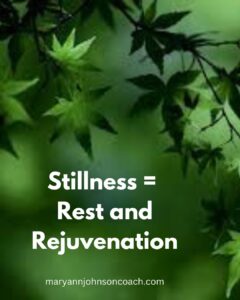 My husband was watching the show The Irrational. It’s about a behavioral science professor who solves tough police cases. I was in the kitchen and could hear it. The main character had an appendix surgery. He tried to rise from his bed a few times because there was a case he wanted to get going on. His sister had to nag at him to remain in bed and heal. At one point the professor spoke with a priest, while still in the hospital. The priest said, “St. Stillness has visited you.” Then he smiled and the professor replied, “Oh, stillness. I’m not very good at it.”
My husband was watching the show The Irrational. It’s about a behavioral science professor who solves tough police cases. I was in the kitchen and could hear it. The main character had an appendix surgery. He tried to rise from his bed a few times because there was a case he wanted to get going on. His sister had to nag at him to remain in bed and heal. At one point the professor spoke with a priest, while still in the hospital. The priest said, “St. Stillness has visited you.” Then he smiled and the professor replied, “Oh, stillness. I’m not very good at it.”
 I like Kerry Patterson. He is a great writer and from my era, so I relate to everything he writes. Back in September 2012, Kerry
I like Kerry Patterson. He is a great writer and from my era, so I relate to everything he writes. Back in September 2012, Kerry 

 didn’t need to pluck each blossom and give it away, but when a bloom was finished and began to droop, you clipped off the head so that it couldn’t produce seeds.
didn’t need to pluck each blossom and give it away, but when a bloom was finished and began to droop, you clipped off the head so that it couldn’t produce seeds.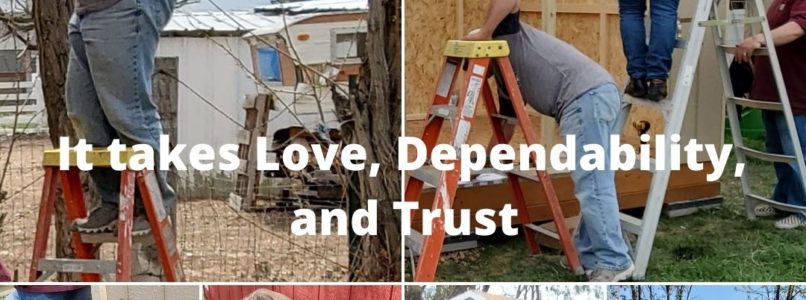
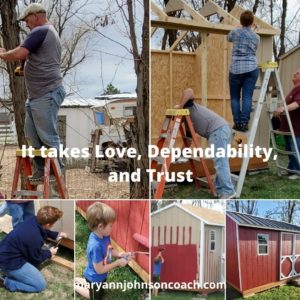

 Wise people seek wise counsel.
Wise people seek wise counsel. The other day when I went out to water the garden,
The other day when I went out to water the garden,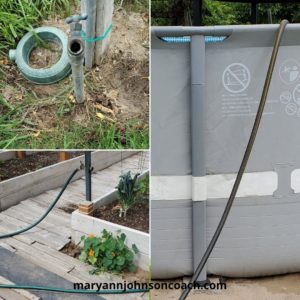 the same thing almost every day. First, I walk out to the back faucet and turn on the water. Then I go through the garden gate and turn on the second faucet which lets water into the garden.
the same thing almost every day. First, I walk out to the back faucet and turn on the water. Then I go through the garden gate and turn on the second faucet which lets water into the garden.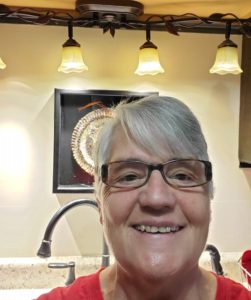 When we moved with Jodie’s family this last time, we had to build a kitchen for my family, where a storage room had been. Everyone tried to talk me out of the light I choose to go over the kitchen sink. After all, it was a bathroom fixture. I didn’t care, I loved how it looked, and it was so illuminating. Every time I use that light, I am amazed at how much better I can see. The odd thing is that I don’t always use this extra light. Sometimes I will be washing potatoes or doing dishes and think, “I have enough light.” And I do, sort of. Then I will have a change of heart and flip the switch that is right in front of me, and voila! I can see so much better. There are other times when I know that I need more light, and I hurriedly flip the switch. I am always shocked at how much better I can see and how much more efficiently I can do whatever job I am doing because the details are more apparent.
When we moved with Jodie’s family this last time, we had to build a kitchen for my family, where a storage room had been. Everyone tried to talk me out of the light I choose to go over the kitchen sink. After all, it was a bathroom fixture. I didn’t care, I loved how it looked, and it was so illuminating. Every time I use that light, I am amazed at how much better I can see. The odd thing is that I don’t always use this extra light. Sometimes I will be washing potatoes or doing dishes and think, “I have enough light.” And I do, sort of. Then I will have a change of heart and flip the switch that is right in front of me, and voila! I can see so much better. There are other times when I know that I need more light, and I hurriedly flip the switch. I am always shocked at how much better I can see and how much more efficiently I can do whatever job I am doing because the details are more apparent.
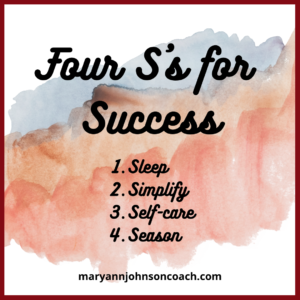 I gave up New Year’s Resolutions many years ago. I always felt set up for failure. I have found it more useful to periodically evaluate how I am managing my life, how I am feeling about it, and what simple adjustments I could make so that I fare better. I emphasize the word simple. I also keep the list short! I want success and not overwhelm.
I gave up New Year’s Resolutions many years ago. I always felt set up for failure. I have found it more useful to periodically evaluate how I am managing my life, how I am feeling about it, and what simple adjustments I could make so that I fare better. I emphasize the word simple. I also keep the list short! I want success and not overwhelm. one on Dec. 30. This Christmas, both sets of parents pondered what to
one on Dec. 30. This Christmas, both sets of parents pondered what to  do about their Christmas trees. They have older children. They like their homes to look festive. In the end, they adjusted for the season they are in. One kept all the ornaments on the top half of the tree. The other had a very small tree on a tabletop. It isn’t what they love or do every year, but it is what they did this year. Your season matters and when you honor the season you find yourself in, things feel more peaceful. They could have spent the whole season spanking baby hands or grieving over broken family mementos. But they choose to respect the season their family was in.
do about their Christmas trees. They have older children. They like their homes to look festive. In the end, they adjusted for the season they are in. One kept all the ornaments on the top half of the tree. The other had a very small tree on a tabletop. It isn’t what they love or do every year, but it is what they did this year. Your season matters and when you honor the season you find yourself in, things feel more peaceful. They could have spent the whole season spanking baby hands or grieving over broken family mementos. But they choose to respect the season their family was in.
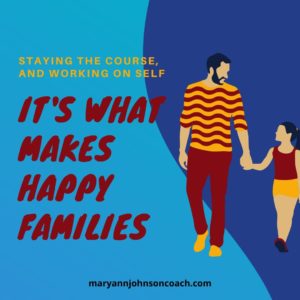 As I was raising our children, I made many mistakes. I was not gentle enough. I was a yeller. Sometimes I did not listen. I could be stern.
As I was raising our children, I made many mistakes. I was not gentle enough. I was a yeller. Sometimes I did not listen. I could be stern.
 Do you recall the White Rabbit in Lewis Carrols, Alice in Wonderland? You know the jumpy little guy who was always crying out, “I’m late, I’m late, for a very important date.” He was so worried about being in the right place at the right time. He had so much on his plate.
Do you recall the White Rabbit in Lewis Carrols, Alice in Wonderland? You know the jumpy little guy who was always crying out, “I’m late, I’m late, for a very important date.” He was so worried about being in the right place at the right time. He had so much on his plate.